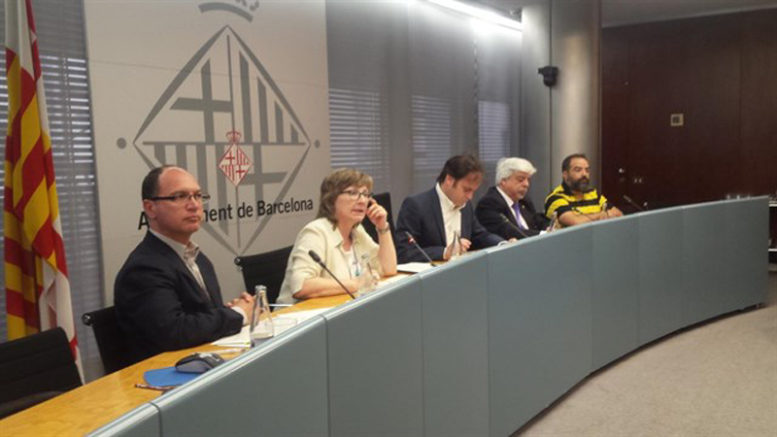• Identity card will enable migrants to forestall deportation until case is heard
• Local document will facilitate inclusion in ‘padron’ census, access to services
Officials in Spain’s second largest city, Barcelona, have announced that local authorities soon will begin issuing identity cards to otherwise undocumented immigrants living in the city in order to facilitate the immigrants’ access to municipal services and help them to prove they are residents in the city when detained by federal authorities for internment in the local Centro de Internamiento de Extranjeros (CIE) detention center.
Barcelona city officials speaking at a press conference Monday said that beginning in September individuals who do not have legal immigration status in Spain can nevertheless request a local Barcelona identity card, provided they can prove they have been living in Spain for at least one year and in Barcelona for at least six months. The ability to show they have relatives living in Barcelona or that they belong to an immigrant rights or community group will also be taken into account in local authorities’ decision whether or not to grant an ID card.
Immigration attorneys who represent undocumented immigrants who are detained and interned in a CIE centre pending deportation are required to immediately show proof of their client’s residence in Spain in order to forestall deportation. Barcelona officials say the possession of a local identity card will help the immigrants to remain living in the city until their immigration case is decided and will also enable them to enroll on the local padron census list and gain easier access to basic public services.
In October, Barcelona officials called for the closure of the local CIE centre in the city’s Zona Franca port area, calling conditions for detainees there “infrahuman”, and subsequently filed legal action against Spain’s national government over conditions at the centre. Barcelona mayor Ada Colau and Madrid mayor Manuela Carmena have been at the forefront of pan-European efforts involving cities calling for improved conditions for migrants and greater acceptance of refugees from war-torn areas of the Middle East and Africa.
► Read More in Spanish at Europa Press, El País and El Diario …


